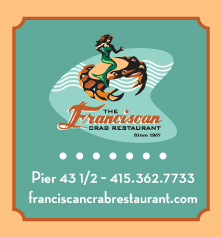THE URBAN HOME & GARDEN
Clean green!
When shopping for or using cleaning products in your living space, keep these tips in mind:
Green
“Green” is a marketing term used by manufacturers, not a scientific term. Responsible manufacturers test their products extensively and comprehensively. When in doubt, your best bet is to choose a trusted brand like 7th Generation or Ecover. You can also look for the Earth Friendly logo on products.
Natural
Consumers should be leery of this claim on any product. Cyanide is “natural” but you probably wouldn’t want to use it in your home. This term is not regulated, except by the USDA for meat and poultry.
Organic
This term refers to any product that was grown or created without the use of chemical pesticides, fertilizer, hormones, antibiotics, or artificially derived chemical additives. Organic plant products do not allow for genetic engineering or the use of radiation.
Disinfectant
The use of this term is regulated by the EPA, and any products with this label must have undergone extensive testing of its germicidal properties.
Disposal
The most environmental and economical sense is to use the product as it was intended. Products designed to be used with water are designed to go down the drain. Leftover hazardous products like oven cleaners and caustic drain openers should be disposed of properly at the City’s Tunnel Avenue disposal site. Phone 415-330-1300 for more information or to schedule a pick up.
Product Ingredients
Look for and avoid these common household cleaner ingredients when considering your purchase of a particular cleaning solution.
• Sodium laureth sulfate: Common in dish soaps, laundry detergents and many personal care products, this synthetic compound may contain 1,4-dioxane, a known carcinogen.
• Boric acid: Canada and Japan have banned this for use in cosmetics, but in can be found in many U.S. liquid laundry detergents. Scientific studies have shown that long term exposure may disrupt the endocrine and reproductive systems.
Look for these ingredients for a safer cleaning solution:
• Glycerin: A natural alcohol derived from sugar and also known as glycerol, glycerin naturally removes clothing stains and functions as a humectant for skin.
• Thymol: A natural, crystalline compound made from thyme oil that has antifungal and antiseptic properties, making this a great earth-friendly germ killer.
• Calcium chloride: Often added to fabric softeners, this type of salt is derived from limestone and acts a safe, natural drying agent.
Julia Strzesieski is the marketing coordinator at Cole Hardware and can be reached at [email protected].


